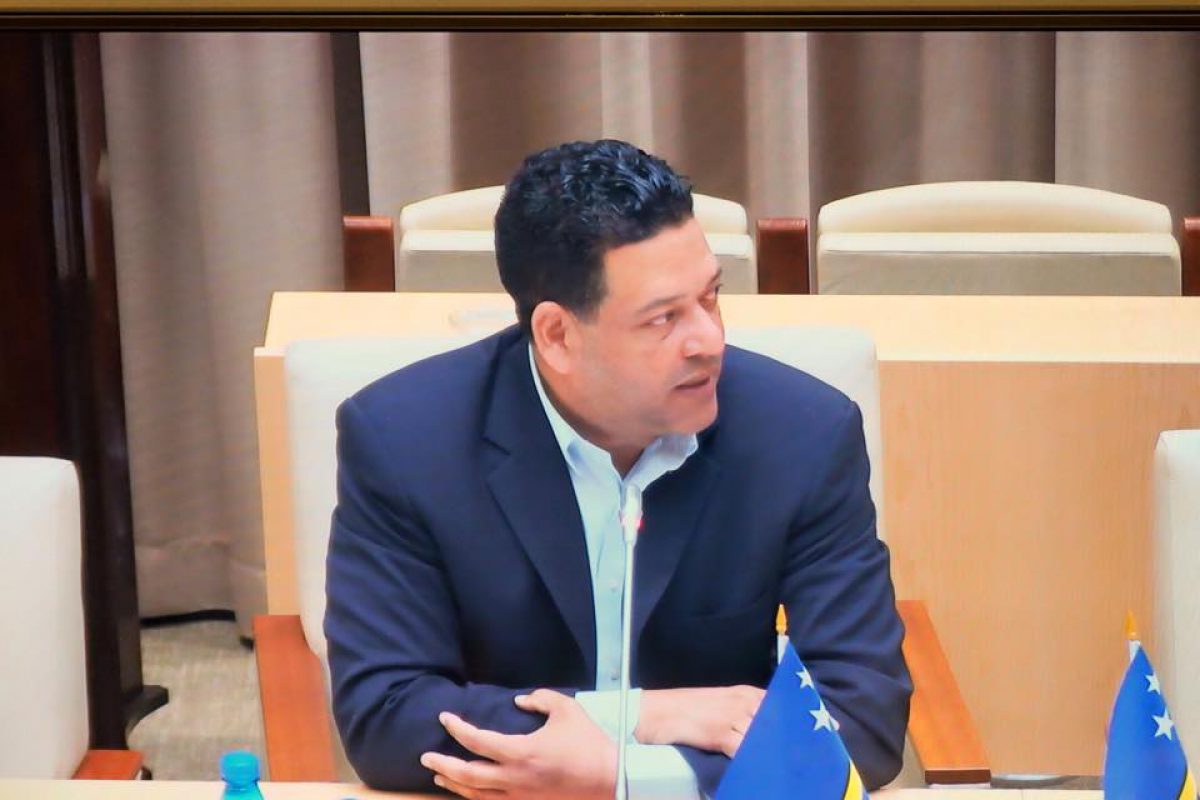On September 15, 2016, just two weeks before elections in Curaçao, I sat in the first row for the signing ceremony of the MoU between the Government of Curaçao and the Chinese state-controlled Guangdong Zhenrong Energy (GZE). I had also hoped to finally learn some details about the memorandum. Unbelievably Members of Parliament at that time were not given any information regarding the contents of the MoU so I had no idea what was being signed. No wonder I called the whole GZE matter a blackbox during an earlier parliamentary debate. Before the ceremony the public was shown a Chinese communist propaganda-style film about the progress being made in Myanmar where GZE would construct its first ever refinery. And boy did everything look peachy! Villagers were happy and doing construction work. Never mind that in the village in question 90% of the people are farmers or fishermen. The environment was going to be taken care of and believe it or not, even the dogs in the film seemed to have an extra spring in their steps. Little did I know at that moment that 8 weeks later I would be in Myanmar looking into a project about governance and human rights.
Quickly I found out that the Chinese film failed to mention that the GZE project was hastily approved just days before the first free election in 25 years in Myanmar was held. Yes, China was the most important ally of the brutal Myanmar military dictatorship. The protests against the GZE because of environmental perils and the perceived Chinese neglect of this issue, were not shown. Nor were we informed of land confiscations and other human rights violations on behalf of the Chinese mega projects with little or no consultation, compensation or redress. As a matter of fact, the United Nations’ Special Rapporteur on Human Rights in Myanmar referred to these infractions in his statement earlier this year on 21 July. I am looking forward to his full report which will be presented to the U.N. General Assembly in October. We didn’t get to see an interview conducted by Deutsche Welle on 19 August, 2016 with one of the leading experts on Myanmar, Mr. Robert Taylor, about the lack of local jobs and the unwillingness of the Chinese to integrate into Burmese society which has strained people-to-people ties between the two countries.
Lessons from Myanmar
Without any clear demonstration that China’s conduct has significantly taken a break from the past, Curaçao should be cautious of the Chinese intentions. The Nigeria Central Bank Governor said it best when he warned the world to shake off this romantic view of China and accept Beijing as capable of the same exploitative practices as the old European colonial powers. A Burmese delegation I spoke with in Yangon spoke of “yellow exploitation replacing white exploitation”. Point is that the sooner these lessons are learnt by the decision makers in Willemstad, the better for us all. The sad fact is that there is a group that seems to be driven by an unhealthy thirst to score politically and considers the GZE as the celestial saviors of our stagnant economy. We cannot afford to have people behaving like a deer in headlights when negotiating with the Chinese. In fact we should accept that sustainable economic growth is achieved with sound and flexible policies, not a money bag from Beijing. The Netherlands is said to be very worried about the current state of affairs and according to some sources who do not want to be identified, it is not unconceivable to have The Hague intervene in this matter. It would not be the first time that we got it wrong with this refinery. In the past we leased the oil facilities for a song to Venezuela and gave tax exonerations for promises of thousands of jobs that were never created. To put in my two cents based on experience in Myanmar and other parts of Southeast Asia, Curaçao should not underestimate the following:
1. Transparency: Complete transparency in each stage of the GZE project is a must. From the tender, bidding to standards, ethics practices, scope, scale, timeline and impact relevant information should be available.
2. Outreach: We cannot become aware of this project when the bulldozers show up. Outreach to all stakeholders and giving the community the opportunity to voice concern is key.
3. Corporate governance: China should recoup the amount invested but, the staggering inequity of past projects, especially employment of Chinese nationals instead of using local people, and breach of labor rights cannot be repeated.
4. Social responsibility: Parties should reduce distrust and hostility on both sides and increase responsible and mutually beneficial programs. Integration, acceptance of local laws, culture and customs should be high on the Chinese agenda.
5. Balance: Curaçao should carefully balance its position to ensure embracing one foreign partner does not come to the detriment of another.
6. Leverage: We should maximize the presence of China and look into other mutual beneficial activities. An obvious one is a double tax treaty between Curaçao and China which will greatly benefit our international financial sector.


Eye opening article. Good job.
LikeLiked by 1 person
Thank you Kenneth.
LikeLike
I liked what you said: “yellow oppression is replacing white oppression”
LikeLike
Thank you for your input Denize Tak.
LikeLike
The six points of attention apply to each and every project that we seek to undertake. Accountability is also a requirement,broken promisses of employment,human rights violations,environmental violations etc cannot bo ignored without any consequenses.
LikeLiked by 1 person
I agree with you Ivor. I think however that we are too eager to accept inferior projects because we want to score projects even of it means that in the long run they are not profitable/sustainable.
LikeLike
Spera ku nos hendenan aki den Forti ta saka les for di bo artikulo. E ta hopi bon mes. SIGUI ounke ku bo ta leu, di tene nos tur skerpi aki na KORSOU.
LikeLike